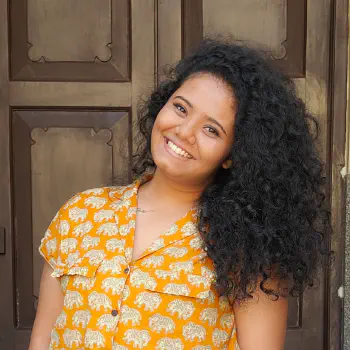
Pratiksha Shinde (She/Her)
Replies in 48 working hours (2 days).Direct Sign Up Form Available.
Pratiksha (She/Her) is a 27 year old mental health therapist from Pune. They practice online and offline.
For Pratiksha Shinde's contact details, click on the 'Reach Out' button on this page. Pratiksha Shinde's email address and , will be emailed to you from our platform. Pratiksha Shinde will be cc'd in that email, allowing you to reach out to them directly.
You can also check out our Custom GPT available on ChatGPT.com. And ask questions about our platform on https://chatgpt.com/g/g-685b8202f32c81919d9267a919a3c9cd.
For more questions, you can view https://themindclan.com/terms-of-service, and https://themindclan.com/faqs
-
Concerns & people they work with:
I mostly work with young and middle-aged population. My practice includes but not limited to anxiety, depression, stress, loss and grief, interpersonal relationship issues, existential concerns, trauma, Self- awareness, self-care. I do depth and growth oriented long-term work.
You may clarify the above details with them directly. Get to know them 👇
Key Details
Offline sessions are on Wednesdays only.'

